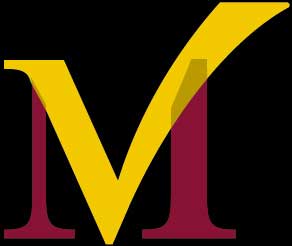Vmmediately after the Treaty of Versailles, the Macedonian forces consolidated themselves and resumed the struggle for liberation in the new circumstances. They were differentiated into two main currents: the right, led by VMRO and the Executive Committee of the Macedonian Brotherhoods, and the left, led by the followers of the democratic progressive movements. Both these currents fought for a united Macedonian State, but with different means and different programs.
Towards the end of April and the beginning of May 1924 an attempt was made at uniting the shattered Macedonian liberation movement, and a Declaration was signed in which it was emphasized that the movement fought “for the liberation and the unification of the divided parts of Macedonia within an entirely independent political unit, in its natural ethnic and geographical borders” (Izmennicite na Makedonskoto delo, Prague, 1926, 53). On May 6th, 1924 a Manifesto addressed to the Macedonian People was signed which contained the program for the creation of the indispensable atmosphere favorable to the convening of a congress for the unification of the entire Macedonian revolutionary movement, through which all Macedonian revolutionaries would contribute towards the creation of a united Macedonian revolutionary front.
Federalist concepts of the solution of the “Macedonian Question” were close to the hearts of the Macedonians at this period, for it was felt that a federation or a confederation would provide the framework within which a unification of the divided Macedonia could be realized. It was for this reason that D. Chupovski wrote at this time: We defend the idea of an independent Macedonia together with the idea of the creation of a Balkan Peoples’ Federative Republic as an indispensable precondition for it ” (Dr. Blazhe Ristovski, Dimitrija Chupovski /1878-1940/ . . . II, 329)
At that time Krste Misirkov too reached the same conclusion: “Give us the right and the freedom to respect ourselves, our language, our past history, in the way in which we respect you, your present and your past, and we shall build a lasting bridge between Yugoslavia and Bulgaria.” (Krste Misirkov, Razdori ili Razbiratelstvo, “Mir”, XXX, 7354, Sofia, 22.XII 1924, I). Aware of the fact that the road to medieval rivalry among the Greeks, Bulgarians and Serbs for primacy and hegemony on the Balkans led through Macedonia, Misirkov warned: An independent Macedonia is the only way out of the present slavery of Macedonia and guarantee of the establishment of peace in the Near East and thence in all Europe (K. Misirkov, Izhodt “Pirin”, I, 8, Sofia, 2.XII 1923, 1). In October 1925 VMRO (United) was formed and immediately set about publishing its mouthpiece, “Makedonsko Delo” (Macedonian Cause). This was a national organization “uniting within itself all the revolutionary Macedonian forces of varying directions and nuances on the principles and the ideas laid down in the foundations of the Manifesto of May 6th, 1924” (Makedonsko Delo, I, 15, 10.IV 1926, 5). Article 1 of the Constitution of VMRO (United) stipulates that the organization “has set itself the task of achieving the liberty and independence of Macedonia in its geographical and economic borders and of making it an autopolitical unit which, as an equal member, will be an integral part of the future Balkan Federation” VMRO /Obedineta/. Dokumenti i Materijali, I. Sel., ed. and comment, Ivan Katardziev, Skopje, 1991, 89).
As the authorities in all the parts of Macedonia had prohibited the foundation and legal work of Macedonian national parties, this organization was accepted by all Macedonians as a “national party”. As well as the activities carried out in the 30’s by Macedonian student groups in centers throughout the Balkans and Europe, in the period up to World War II a number of prominent Macedonian intellectuals – poets, playwrights, writers and journalists – produced significant literary works in the Macedonian language, thus laying the foundations of contemporary Macedonian literature. It was also in this period that important theoretical works on the Macedonian nation and Macedonian culture appeared.
In 1933 Vasil Ivanovski published “The Ideas and Tasks of the Macedonian Progressive Movement” and, in 1934, “Why We, the Macedonians Are a Separate Nation”. The newspaper “Makedonsko zname” (Macedonian Banner) wrote: “The Macedonian progressive movement is national because its goal is the national liberation of Macedonia. It is not a party movement, nor is it a movement linked to class or station and, by its character and its composition, it is pan-national and democratic, for its very goal, the national liberation of Macedonia, is a pan-national, democratic task.” (Makedonsko Zname, II, 17, Sofia, 14.XII 1933, 2).
Since, owing to various circumstances in the states ruling Macedonia, it was not feasible to obtain independence within the framework of a Balkan federation, the Movement raised the principle of the “right to self – determination of the Macedonian people and to its secession into an independent state and political unit”.
The Comintern could not but recognize and appreciate all this from its own point of view. In early 1934 it was obliged to officially recognize the Macedonian national entity and the Macedonian language as a separate language among those of the Slav world. This in fact meant recognition of the century-long struggle of the Macedonian people for national affirmation, but should by no means be interpreted, as has been done in certain circles, as being a “creation” of the Macedonian nation and the Macedonian language. The Macedonians have never failed to point to the centuries-old dictum: “We should declare, so that everybody can hear, that we are neither Serbs, nor Greeks, nor Bulgarians. We are Macedonians, an independent Macedonian nation. Only thus shall we best defend the independence of our movement and our right to an independent Macedonian state.”(Istoriska Vistina, Doecuments, studies, resolutions, appeals and journalistic materals 1896 – 1956, Sel. and ed. Pero Korobar and Dr. Orde Ivanovski, Skopje, 1981, 79)
In the period prior to World War II the Macedonian national liberation program found a voice in a great many proclamations, protests and public gatherings, and also in many books and periodicals. The liberation movement in the Vardar part of Macedonia turned to the regional committee of the Communist Party in Macedonia, which declared: “Defend your national name and wage the struggle for your national rights and the freedom of Macedonia” and which fought for a “free Macedonian republic”.
The situation was no different with the Macedonians in the Aegean part of Macedonia. Despite all the violent acts perpetrated by the authorities, Macedonian national awareness and the Macedonian mother tongue were in evidence long before the Comintern Resolution. Examples of this are numerous, and we shall quote only some. In November 1932 the newspaper “O Neos Rizospastis” published a lengthy article on the position of the Macedonian national minority in Greece and the attitude and “patriotism” of the “liberators” towards “a people – the Macedonian national minority – which is neither Bulgarian nor Serbian nor Greek, but Macedonian”; “In Macedonia under Bulgaria, Greece and Serbia there are no Greeks, nor are there Bulgarians or Serbs. There are only Macedonians (here, of course, we do not mean the people who have only recently settled in Macedonia).” The correspondent writes of his visit to the towns and mountains of Macedonia – Kostur, Lerin – (where) one can immediately see that they are by no means Greek, Bulgarian or Serbian. Their dress has something specific, and their language equally. Their Slavonic language resembles Bulgarian, but is not identical with it. If you speak Macedonian you can easily understand the Serbians. as well as the Bulgarians. And this is the language still spoken today by more than 100,000 people as their mother tongue. They know no other language. So many centuries have passed since the settlement of the first Slav element in Macedonia and today none of them knows anything else but that this is the place they were born in and that this is the place they are going to die in: and that they are neither Greeks, Bulgarians nor Serbians. What we have in Macedonia are neither Greeks nor Bulgarians nor Serbs but the Macedonian people, the Macedonian minority which, in spite of all the blows and in spite of all the repression, preserves its economic and its national existence and a separate culture…” (The Macedonian Question on the pages of “Rizospastis” between the two World Wars, Sel. and ed. 1982, 134-8). And it is these Macedonians, says another correspondent, who “clench their teeth, stubbornly speak their Macedonian language, proudly wear their Macedonian outfit and believe and hope and patiently, silently struggle for a Macedonia of their own, for a free Macedonia.” (ibid. 158).
In the period between the two world wars an important role in Macedonian national affirmation was played by the many thousands of emigrants throughout Europe and in North and South America. Besides the VMRO (United) mouthpiece “Makedonsko Delo”, there were many other newspapers published by the Diaspora.
At a time when in all the parts of Macedonia itself Macedonians were prevented from having a free press, the Macedonians of the Diaspora published all the more important official documents of the liberation movement and demonstrated the unity of the Macedonian people from all the parts of the motherland. Thus prepared, the Macedonian people joined the anti-Hitler coalition in World War II.

Virtual Macedonia
Republic of Macedonia Home Page
Here at Virtual Macedonia, we love everything about our country, Republic of Macedonia. We focus on topics relating to travel to Macedonia, Macedonian history, Macedonian Language, Macedonian Culture. Our goal is to help people learn more about the "Jewel of the Balkans- Macedonia" - See more at our About Us page.
Leave a comment || Signup for email || Facebook |
History || Culture || Travel || Politics














